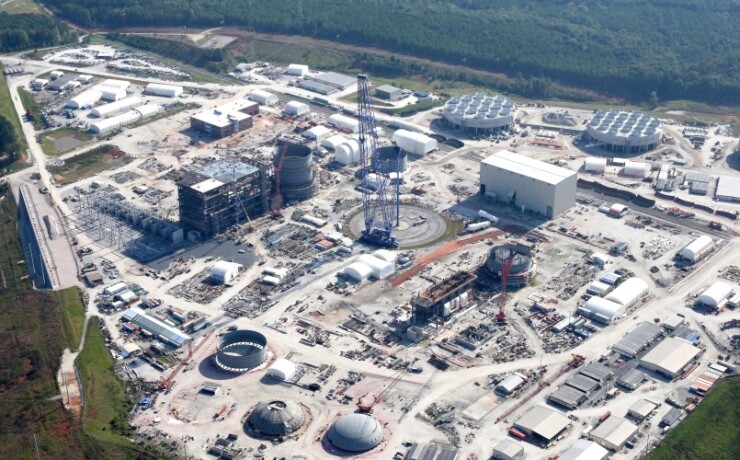The investor-owned utility that managed the failed twin nuclear reactor project in South Carolina has agreed to settle Securities and Exchange Commission charges of defrauding investors.
SCANA Corp. and its subsidiary South Carolina Electric & Gas Co. will pay a $25 million penalty and $112.5 million in disgorgement plus prejudgment interest for making false and misleading statements about the nuclear power plant expansion ultimately abandoned at the V.C. Summer Nuclear Station,

“The securities laws require public companies and their senior executives to speak truthfully in their statements to investors,” said Justin Jeffries, associate director of the SEC’s Atlanta Regional Office. “This settlement holds SCANA and SCE&G accountable for their alleged fraud and reinforces that companies must not deceive investors.”
SCE&G, now owned by Dominion Energy, owned 55% of the twin-reactor project.
South Carolina-owned municipal utility Santee Cooper owned 45% of the reactors and issued $4.2 billion of debt between 2008 and 2016 to finance a portion of its share of the project before it was shelved in July 2017.
Santee Cooper's board of directors canceled the project after determining that the cost to complete the reactors was uneconomical. An analysis showed that completing the units would cost municipal utility customers another 41% in rate increases by 2030, and another nearly $7 billion on top of the $4.5 billion that had already been spent on the project.
Without a partner, SCE&G decided not to finish the partially built reactors.
In February, the SEC filed a federal complaint alleging that SCANA, SCE&G, and two of the company's former senior executives misled investors by claiming that the nuclear project would qualify for more than $1 billion in tax credits when they knew the project was far behind schedule and therefore unlikely to qualify for the tax credits.
The complaint also alleged that the company's false statements and omissions boosted SCANA’s stock price, enabled it to raise rates on customers and to sell more than $1 billion in bonds.
"SCANA and its senior executives repeatedly deceived investors, regulators, and the public over several years about the status of a $10 billion nuclear energy project," said the complaint filed in U.S. District Court in Columbia, South Carolina. "When the truth was revealed, it resulted in hundreds of millions of dollars in losses to SCANA’s investors and to South Carolinians."
The SEC’s complaint also charged SCANA’s former chief executive officer Kevin Marsh and former executive vice president Stephen Byrne with violations of the antifraud provisions of the federal securities laws.
In July, Byrne, 60, pleaded guilty in federal court to conspiracy to commit mail and wire fraud. The litigation against Marsh is still ongoing.
Without admitting or denying the allegations, SCANA and SCE&G agreed to a permanent injunction. The proposed settlement still requires court approval.
Canceling the reactor project drew numerous lawsuits, including the class-action case led by Jessica S. Cook against SCANA, SCE&G and Santee Cooper, formally known as the South Carolina Public Service Authority.
The two-and-a-half year long ratepayer case
Santee Cooper declined to comment on the SEC's settlement with SCANA and SCE&G.





